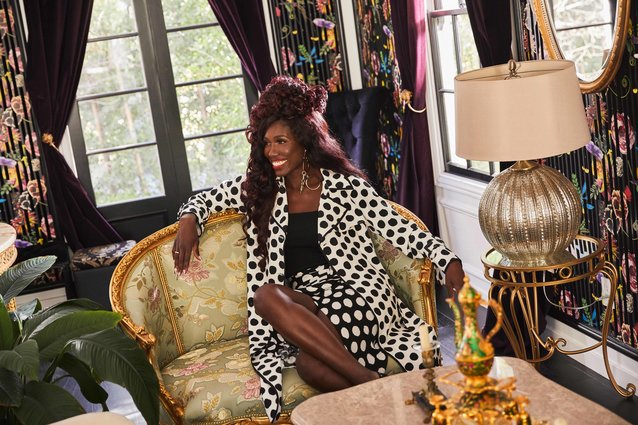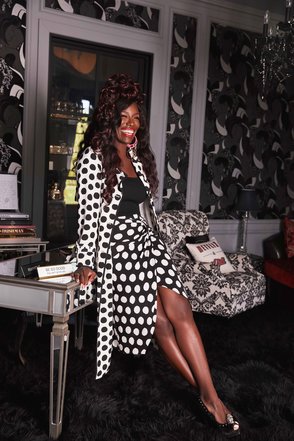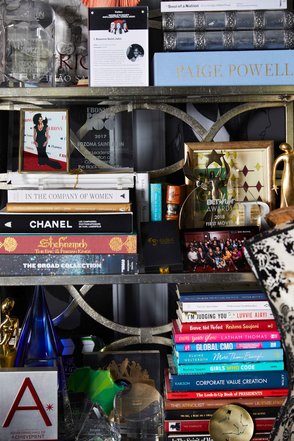Bozoma Saint John
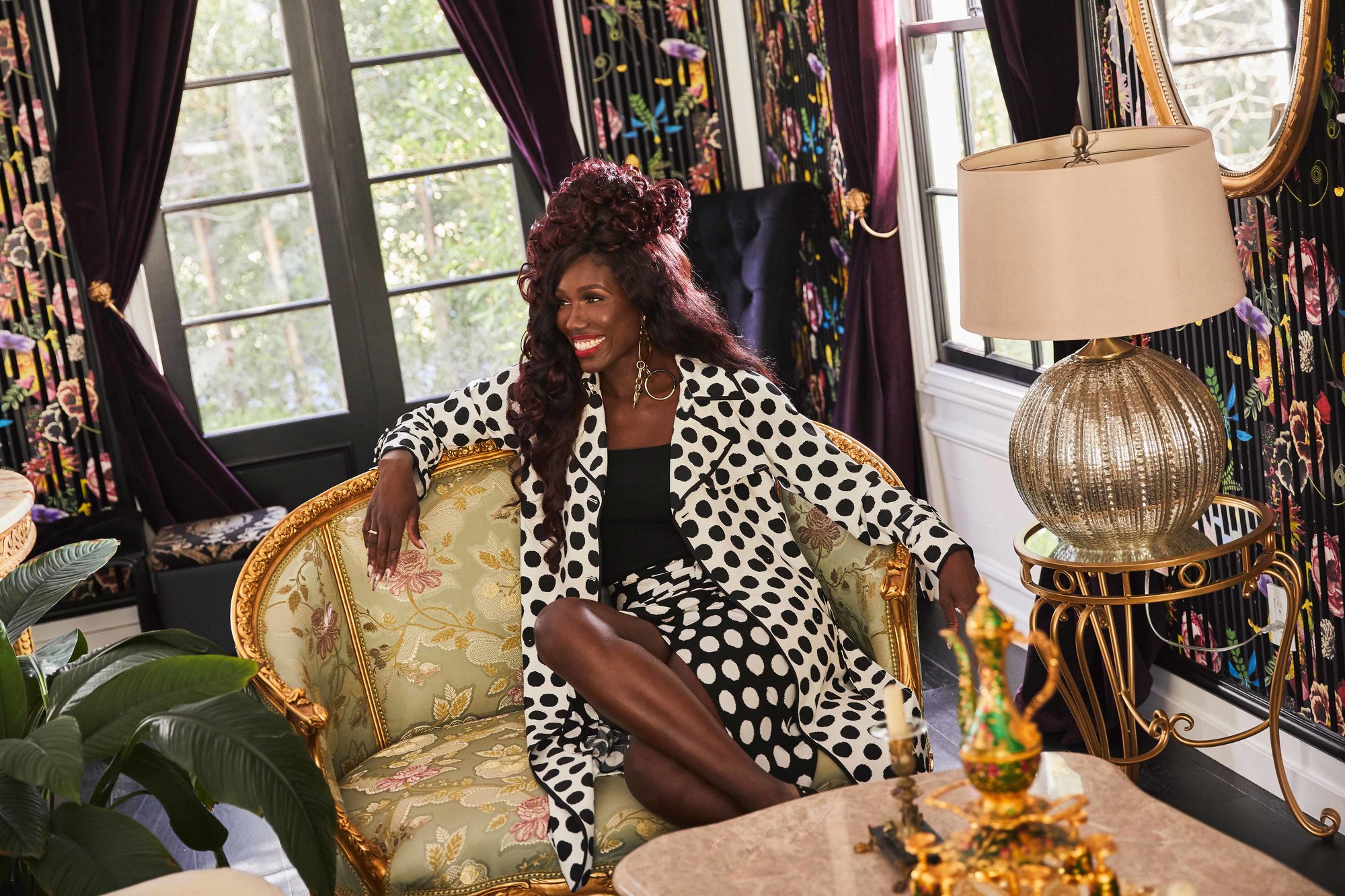
Bozoma Saint John
The Best Person to Be Is Yourself
As Hall of Fame Marketing Executive, author, and entrepreneur, Bozoma Saint John’s foray into pop culture was strategic in a manner most people would not expect. Growing up, her family moved around frequently and she found that the trends of the moment—music, art, film—were the most immediate connection she had with the new kids she was meeting.
“I found that regardless of the language or the country or whatever background was present in this new space I was entering and I found myself othered, I could always connect with people through culture. I’d say ‘Have you heard this new song?’ and, most of the time, somebody would say yes. It’s the great connector, pop culture. I just want to be a master of it. It runs the world!”
The other side of pop culture that always excited Bozoma (or as she likes to be called, Boz) was its impact. She points out that, regardless of someone’s socioeconomic background, a good song can set the tone for an equally good day or a well-written film can give them a fresh perspective on life.
“It doesn’t matter who you are, you can be so influenced by art that it allows you to express your life differently. That was what I found so attractive because, as a marketer, it made all the sense in the world that if I wanted to connect with people I would have to do it through the arts, through culture, and that I would then have to know all of it. All of the time!” she laughs.
The Best Person to Be Is Yourself
As Chief Marketing Officer of Netflix, Bozoma Saint John’s foray into pop culture was strategic in a manner most people would not expect. Growing up, her family moved around frequently and she found that the trends of the moment—music, art, film—were the most immediate connection she had with the new kids she was meeting.
“I found that regardless of the language or the country or whatever background was present in this new space I was entering and I found myself othered, I could always connect with people through culture. I’d say ‘Have you heard this new song?’ and, most of the time, somebody would say yes. It’s the great connector, pop culture. I just want to be a master of it. It runs the world!”
The other side of pop culture that always excited Bozoma (or as she likes to be called, Boz) was its impact. She points out that, regardless of someone’s socioeconomic background, a good song can set the tone for an equally good day or a well-written film can give them a fresh perspective on life.
“If I see you that way, with love, I must let your grief into my heart, your story into my heart, I must stand up for you when you’re in harm’s way. What happens when we see George Floyd as our brother, or Breonna as a sister, migrant children as our own sons and daughters—what would we risk?”
Boz didn’t know exactly what she wanted to do growing up, she just followed her passions and interests. This trust-your-gut trajectory of hers made it so that she worked in not two or three, but six different industries. Before Netflix, Boz worked at Uber, PepsiCo, and Apple Music.
“You know, I didn’t set out to be in so many different industries,” she chuckles, “I was just following my heart. Often we’re told to just ‘pick something’ and stick with it. But what if you pick something and you hate it? Or it wasn’t what you thought? You’re supposed to spend the rest of your life making up for that tiny moment in time? No! Of course not. We need to shed the societal norm that choosing yourself first is somehow bad. We have one life, it is ours to live, so why not live it by our own rules?”
This is a point that comes up often in DVF Woman, women rejecting the notion that they should be at the end of their priority list. Instead, they take care of themselves first, go after the things that bring them joy, and as a result, they are better people.
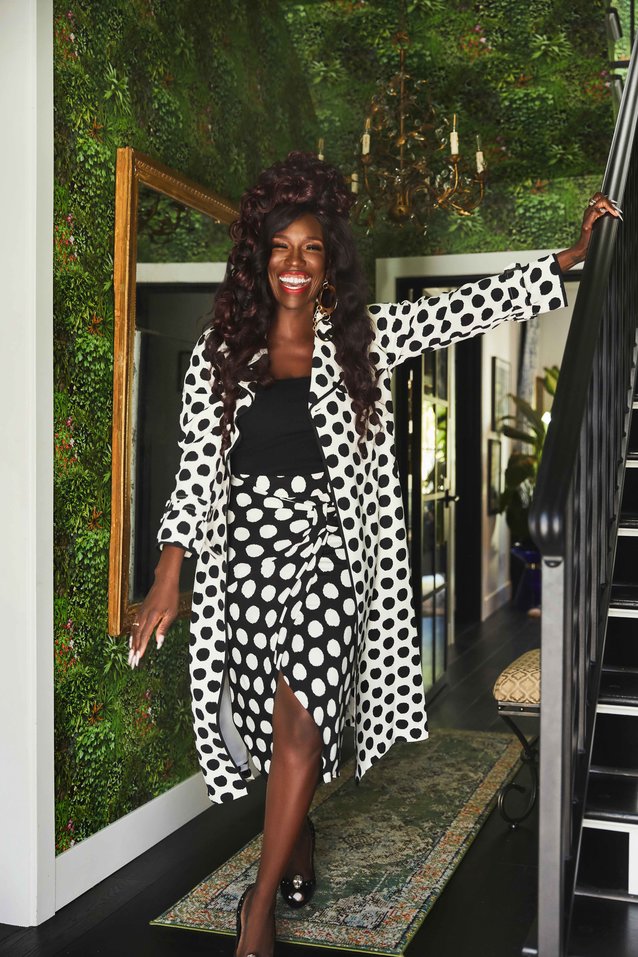
“It doesn’t matter who you are, you can be so influenced by art that it allows you to express your life differently. That was what I found so attractive because, as a marketer, it made all the sense in the world that if I wanted to connect with people I would have to do it through the arts, through culture, and that I would then have to know all of it. All of the time!” she laughs.
Boz didn’t know exactly what she wanted to do growing up, she just followed her passions and interests. This trust-your-gut trajectory of hers made it so that she worked in not two or three, but six different industries. Before Netflix, Boz worked at Uber, PepsiCo, and Apple Music.
“You know, I didn’t set out to be in so many different industries,” she chuckles, “I was just following my heart. Often we’re told to just ‘pick something’ and stick with it. But what if you pick something and you hate it? Or it wasn’t what you thought? You’re supposed to spend the rest of your life making up for that tiny moment in time? No! Of course not. We need to shed the societal norm that choosing yourself first is somehow bad. We have one life, it is ours to live, so why not live it by our own rules?”
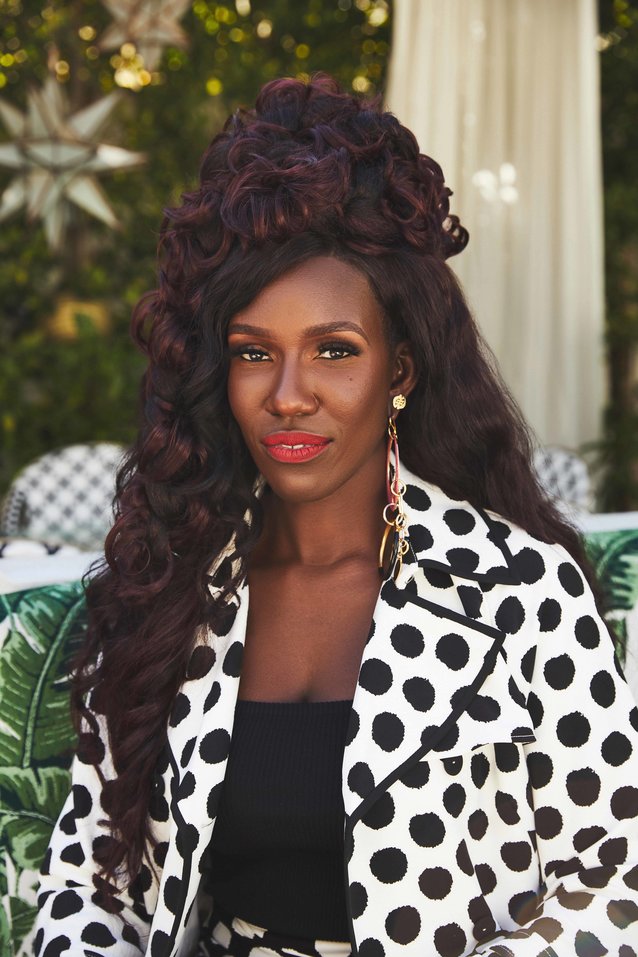
This is a point that comes up often in DVF Woman, women rejecting the notion that they should be at the end of their priority list. Instead, they take care of themselves first, go after the things that bring them joy, and as a result, they are better people.
“I want to get to the end of my life and feel that I lived for myself. That I was able to connect with people, serve my community, be a great mom, and be an awesome friend because I listened to myself and therefore I was happier. Not richer or more successful, I think those are all byproducts. Happiness, joy, and satisfaction, those come from living for yourself.”
“I want to get to the end of my life and feel that I lived for myself. That I was able to connect with people, serve my community, be a great mom, and be an awesome friend because I listened to myself and therefore I was happier. Not richer or more successful, I think those are all byproducts. Happiness, joy, and satisfaction, those come from living for yourself.”
This idea of summoning ancestors is more accessible than one would think. Valarie channels the energy of her grandfather, a biological ancestor, but she also sits at the feet of Black thinkers like Dr. King, James Baldwin, Audre Lorde, and bell hooks.
When she joined Netflix, Boz was the first Black C-level executive at the company—no small deal. Being the “first” anywhere requires a lot of confidence and spunk, something Boz has in spades. However, she didn’t always have the self-assurance that she’d be successful, only that she’d have to do it by just being herself.
“The only thing I knew for sure was that I couldn’t make it trying to be someone else. I didn’t have the energy for it, so I had to be myself. Which sounds so simple, but it’s what a lot of fear is based on, a fear of rejection. You think, what if I show up as myself and they don’t like me? But you know when you reach the bottom of something and there’s nowhere else to go? That’s what it felt like for me. I just didn’t have any other option. I would have been someone else if I could have! Because who says that a Black woman who is a single mom, doesn’t come from the United States, has a hard first name that’s often mispronounced, wears long nails with red lipstick and big hair, and stilettos even though she’s almost six feet tall—who says that she’s supposed to exist and be confident? No one says that. There’s such power in realizing that you have everything you need in order to succeed. What if we all admitted that there is nothing else? It’s just us. There’s not some other thing you have to go and get, there’s not some other person that you have to go be, or some other aura that you have to assume. What you have is enough.”
“The only thing I knew for sure was that I couldn’t make it trying to be someone else. I didn’t have the energy for it, so I had to be myself. Which sounds so simple, but it’s what a lot of fear is based on, a fear of rejection. You think, what if I show up as myself and they don’t like me? But you know when you reach the bottom of something and there’s nowhere else to go? That’s what it felt like for me. I just didn’t have any other option. I would have been someone else if I could have! Because who says that a Black woman who is a single mom, doesn’t come from the United States, has a hard first name that’s often mispronounced, wears long nails with red lipstick and big hair, and stilettos even though she’s almost six feet tall—who says that she’s supposed to exist and be confident? No one says that. There’s such power in realizing that you have everything you need in order to succeed. What if we all admitted that there is nothing else? It’s just us. There’s not some other thing you have to go and get, there’s not some other person that you have to go be, or some other aura that you have to assume. What you have is enough.”
This wisdom is what Boz is trying to pass on to her daughter, Lael. Not by preaching authenticity, but by exemplifying it. Whether she’s feeling on top of the world or frustrated and sad, Boz doesn’t hide her, as she puts it, “unabashed greatness and unabashed weakness”. All of those feelings are ultimately unavoidable, Boz explains, it’s not about getting over them, but moving through them. When talking about her motherhood, Boz’s voice glows.
“Oh it’s so wonderful—at least for me, I don’t know if it is for her,” she laughs, “She’ll have to answer that for herself. It’s wonderful for me because I’m so excited about who she is and her potential. What an honor, what a gift it is to watch a woman develop into who she is. All I want is to help her be her greatest self, not based on my hopes and dreams, only hers. I have to remind myself of that all the time, that it’s her life and I’m not living it. Even though I’ve known her since before her first breath, I don’t know what it’s like to be Lael Saint John. All I can do is try to ease her path so she can be the best version of Lael that she can be.”
This idea of summoning ancestors is more accessible than one would think. Valarie channels the energy of her grandfather, a biological ancestor, but she also sits at the feet of Black thinkers like Dr. King, James Baldwin, Audre Lorde, and bell hooks.
It’s refreshing that Boz is true to herself. Publicly and in her personal life, she makes no attempts to be anyone but who she is. If one were to take a look at her Instagram or red carpet pictures, they’d notice that Boz’s style matches her warm and vivacious personality. She’s often caught sporting bright colors and prints, dresses with volume and unique details, chic heels, and distinctly Bozoma Saint John hairstyles. Her take on fashion is that it is a celebration.
“Fashion to me is a celebration of myself. It’s my way of expressing how grateful I am to be me. It’s like I let my gratitude pour out with what I’m wearing. How great is it to have every single part that I have? Not wishing to be someone else. Now look, there have definitely been times where I wished something was different about my body—that I was shorter or that I had bigger boobs or biceps—the way I dealt with that was by celebrating my body and adorning it beautifully.”
To keep up with Bozoma, follow her on IG @badassboz and check out her TED Talk here.
The photographer for this shoot was Jiro Schneider, keep up with his work on IG @jiro_sc and check out his site.

